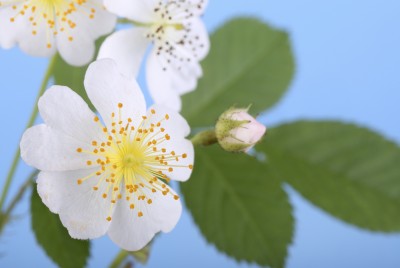






Gardeners have a responsibility to help prevent the spread of destructive, invasive plants by planting responsibly. Read on to find out about invasive plants and the damage they cause.
An invasive plant species is an imported plant that grows and reproduces aggressively, damaging natural ecosystems and putting native plants and wildlife at risk. The difference between weeds and invasive plants is that weeds affect people rather than plants and animals. Invasive plants are unsightly in the landscape, compete with garden and agricultural plants for nutrients and moisture, and reduce agricultural yields. But, some weeds are also invasive plants.
An example of an imported plant gone terribly wrong is the multiflora rose (Rosa multiflora). It was first imported from China in 1866 as a rootstock for grafting ornamental roses. In the 1930’s, the United States. Soil Conservation Service recommended multiflora rose as a soil stabilization and erosion control plant. Unfortunately, this invasive plant species spreads aggressively through birds, which eat the hips and distribute the seeds.
Once set loose in the wild, these plants damage local ecologies with its aggressive growth. It overwhelms and crowds out native plants, often eradicating food sources and nesting sites for native wildlife. This tough species is very difficult to manage.
Here are some ideas and strategies to help prevent the spread of invasive plants:
It is important to avoid new exotic plants in gardens because we don’t know the invasive potential of new imports. While some imports may turn out to be fine garden plants, others can escape cultivation and wreak havoc in the wild.
What to Plant With Iris Plants
California Native Plant Gardens
What to Plant in Your Herb Garden
Looking for an Exotic Tropical Plant?
What Is An Indicator Plant: Using A Plant Indicator To Improve Garden Health
Garden Plant Irritants: What Plants Irritate The Skin And How To Avoid Them
Tips For Attracting Dragonflies – What Plants Attract Dragonflies To Gardens
Copyright © www.100flowers.win Botanic Garden All Rights Reserved